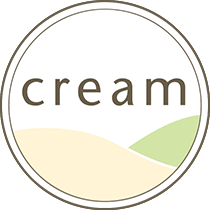Domaine Eric Bordelet
VISIT THIS PRODUCER'S WEBSITE
LOCATE ON GOOGLE MAPS
A CREAM IMPORT SELECTION
Country of Origin: France
Location: Charchigné
People: Eric Bordelet, Owner & Cidriculteur
Viticulture: Certified Organic
Items
Media Links
The Cider Journal: On Eric Bordelet Ciders - Among the World's Greatest Refreshments
Saveur: When Fine French 'Wine' Is Cider
Tasting Table: Pear of Aces
Chicagoist's: Cider of the Month - Eric Bordelet Poire Granit
Fermentation Wine Blog: Cider Review - Eric Bordelet Sparkling Poire Cider (Thrilling)
Formerly the sommelier at one of Paris' most famous Michelin 3-star restaurants (Arpege), Eric Bordelet was encouraged by his good friend Didier Dageneau to pursue his dream of making world-class cider in his native Normandy. Moving back to his family's farm, Eric was blessed with some of the most exquisite raw material he could have ever wanted. There are some 100 varieties of apples on the farm and a small orchard of pear trees planted around 1700. 85% of the types of apples in the base cuvee come from heirloom or antique apple trees. Heirlooms are old varieties that have been grown, savored, and passed down for generations, sometimes for centuries. They come in every color, size, and shape and are all about flavor-usually exquisite; always unique. The entire production is farmed without chemicals and the property was certified organic in 2005. You've never tasted cider like this.
The core of Bordelet's estate is the 1.5 hectares of antique varietal apple and pear trees that are 40-50 years old. In 1992 he began planting young trees (8 hectares), which are now in full production. He plants only true varietal (non-hybrid, non-cross) trees, and the trees are balanced between sweet, bitter and sour varieties. These are essential for producing ciders of character. Currently, he has 20 varieties of apples and 14 varieties of pears planted. The orchards are farmed organically and biodynamically, and Eric believes that this is the regimen which produces the best fruit for ciders.
Bordelet's entire production of fruit is picked by hand in wooden cases. The apples are then left in a drafty place to dehydrate for three to five weeks after which time, the fruit is pressed. (The exception to this is the apples destined for the cuvée "Argelette" which are crushed and left to macerate on their skins for more extraction.) At this point, the alcoholic fermentation takes off, during which time the must is racked several times, and very lightly filtered. The ciders are then bottled during this fermentation with varying amounts of residual sugar depending on the cuvée. The fruit is never chaptalized! The entire production of mousse in the bottle is derived from the primary fermentation and the delicate bottling process.
The historic region of Normandy (French: Normandie) is located in northern France along the English Channel between Picardy on the east and Brittany on the west. It is predominantly agricultural, producing milk, butter, and cheese (Pont-l'Eveque/Livarot/Camembert); apples; grain; thoroughbred horses; and calvados.
The Geological breakdown of the area is sedimentary rocks dating from the Precambrian one; they are rocks formed before the primary era, of 3 billion years. Why does this make a difference for cider? It means the earth below these fruit trees is abounding with minerals which are taken up by the trees and subsequently into the fruit. Once the cider is produced, it translates into incredible texture and minerality. Combine that with 300 year-old organically farmed trees and you've got seriously intense flavors and purity.
The Pays d'Auge area of Normandy is different from the rest of Norman cider in that it has been granted its own appellation contrôlée status with tightly controlled laws for its production. These laws are based on the AOC system that controls wine production such as limiting the varieties of apples used and the villages in which they can be grown.

